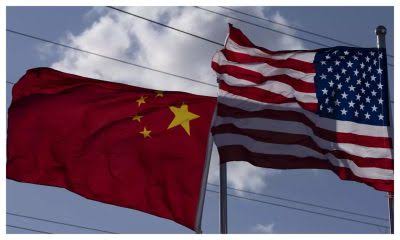News
World Bank calls for debt relief as funds vanish from poor countries

The World Bank’s top economist called on private lenders to shoulder some of the cost of debt forgiveness for the poorest countries, as record high repayments drain budgets that should be focused on health, education and infrastructure.
Interest payments alone by the lowest-income nations ballooned to a record $34.6 billion in 2023, quadrupling over the past decade, the bank said in its latest International Debt Report. Including principal, those 78 nations are paying $96.2 billion annually to service $1.1 trillion in debt.
More alarming, according to Chief Economist Indermit Gill, is that private lenders have pulled almost $13 billion more in service payments from those countries than they injected in new financing over the last two years. That burden is diverting funds from urgently needed investments at home, in areas from public health to climate change.
The World Bank’s latest warning caps a period of growing strain on the finances of poor countries, after a pandemic that forced higher spending and then a worldwide surge in interest rates that raised debt costs. Countries including Sri Lanka and Zambia have defaulted since Covid hit, while others like Pakistan and Kenya teetered on the brink — and international efforts to agree on a wider fix, including relief from private loans too, kept hitting snags.
“It’s time to face the reality: the poorest countries facing debt distress need debt relief if they are to have a shot at lasting prosperity,” Gill wrote in the forward to the report released Tuesday. “Private creditors that make risky, high-interest loans to poor countries ought to bear a fair share of the cost when the bet goes bad.”
For all developing countries, including massive and stable economies such as China and India, total debt payments hit $1.4 trillion last year — including interest of $406 billion — on $8.8 trillion in debt. Over the past two years, that broader group has paid private investors $141 billion more than they’ve seen in new loans, according to the World Bank report.
“That reflects a broken financing system,” Gill wrote, adding that the idea hatched a decade ago that private capital could flood into poor countries to turbocharge development “proved to be a fantasy.”
Gill’s verdict comes as the bank’s president, Ajay Banga, has made one of his top priorities incentivizing more private capital to invest in development alongside multilateral lenders.
The bank is also working with its sister institution, the International Monetary Fund, to steer countries in debt distress toward policies that bolster their finances and lower borrowing costs.
Many nations accumulated debt piles by borrowing heavily in the pre-Covid years when interest rates were low — especially from China and private lenders, which have grown to be significant creditors to poor countries. Problems escalated when the pandemic pushed governments into emergency spending, and then interest rates rose to fight post-Covid inflation.
The consequences are still playing out. A report by credit rating firm S&P Global in October predicted that “sovereigns will default more frequently on foreign currency debt over the next 10 years than they did in the past.”
The flight of private capital from emerging markets has continued this year. Investors using hard currencies such as dollars or euros have pulled roughly $13.6 billion from emerging-market debt funds in 2024, after withdrawing almost $23 billion the previous year, according to data from Bank of America.
The biggest risks are concentrated among the 78 poorest countries categorized by the World Bank as eligible to receive low- or no-interest financing and grants from its International Development Association fund.
Many of those countries face “a metastasizing solvency crisis that continues to be misdiagnosed as a liquidity problem,” Gill wrote.
News
SHOCKING! One month after giving birth, woman discovers another baby in her womb
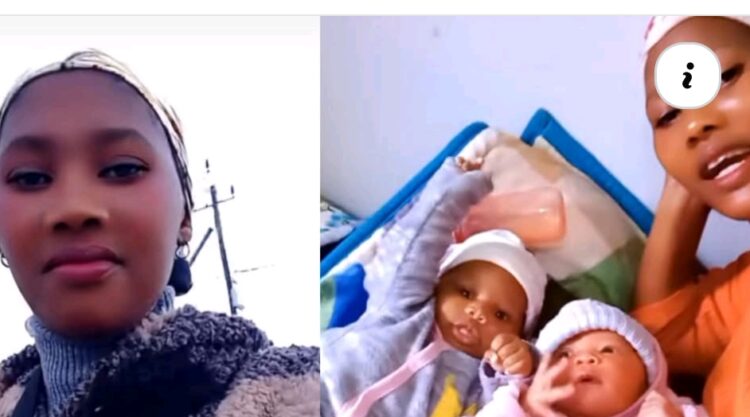
A woman who had given birth just a month earlier was rushed to the hospital after sensing something was wrong—only to discover she was still carrying another baby.
This unusual incident was shared in a viral post on the social media platform X, formerly known as Twitter.
Woman discover another baby in womb a month after giving birth
Woman discover another baby in womb a month after giving birth.
According to the post, the woman had initially given birth at a hospital and returned home after being stitched.
However, a month later, she began to feel unwell and went back to the hospital, where doctors discovered another child still in her womb.
She was immediately put into labor again and successfully delivered the second baby.
The post read: “There’s a Xhosa lady on TT who gave birth to a child in March, got stitched and went home. Well, a month later, she felt something was wrong with her, it turns out there was another child in her womb. So, she gave birth again. She now has twins that are a month apart.”
As the post circulated online, concerned users flooded the comment section to share their thoughts and reactions.
See some reactions below:
@Melo_Malebo: “Idk what’s more shocking, the fact that twins can have different fathers or this one. Also, wasn’t the other one big enough for nurses to see there could still be someone in there ?”
@Fifi_Kumalo: “So the ultrasound didn’t catch the other baby 
@Ralph_Nzuza: “When my lil sister got operated they cut the baby on the cheek after the surgery they forgot those scalpels inside her.”
@StraightupGal: “Surely this incompetence is illegal. One can die giving birth, what more when they have stitched your baby up for a couple of more weeks? 
@mgwatyu_: “Must have delivered at a clinic via NVD, Not booked so no scan or late booker. Cannot be a cesarean section. The stiching must have just been for tears.”
@phuti_mathobela: “God works in mysterious ways some people get to experience his ways in this form while some people in their near death experience. He is God’s of miracles.”
WATCH VIDEO:
There’s a Xhosa lady on TT who gave birth to a child in March, got stitched and went home. Well, a month later, she felt something was wrong with her, it turns out there was another child in her womb. So, she gave birth again. She now has twins that are a month apart.
— Musanathi Writes 
News
Putin open to ‘lasting peace’ agreement in Ukraine -Trump envoy

US President Donald Trump’s special envoy said Monday that Russian leader Vladimir Putin was open to a “permanent peace” deal with Ukraine, following talks seeking to end the more than three-year war.
Trump has been pressing Moscow and Kyiv to agree to a ceasefire but has failed to extract any major concessions from the Kremlin, despite repeated negotiations between Russian and US officials.
On Friday, Trump’s special envoy Steve Witkoff met with Putin in Saint Petersburg — their third meeting third since the Republican leader returned to the White House in January.
Witkoff said during a Fox News interview televised Monday that he sees a peace deal “emerging,” and that two key Putin advisers — Yuri Ushakov and Kirill Dmitriev — were in the “compelling meeting.”
“Putin’s request is to get to have a permanent peace here. So beyond the ceasefire, we got an answer to that,” Witkoff said, acknowledging that “it took a while for us to get to this place.”
“I think we might be on the verge of something that would be very, very important for the world at large.”
He added that business deals between Russia and the United States were also part of the negotiations.
“I believe there’s a possibility to reshape the Russian-United States relationship through some very compelling commercial opportunities, that I think give real stability to the region too,” he said.
Despite a flurry of diplomacy, there has been little meaningful progress on Trump’s main aim of achieving a Ukraine ceasefire.
Putin last month rejected a joint US-Ukrainian proposal for a full and unconditional pause in the conflict, while the Kremlin has made a truce in the Black Sea conditional on the West lifting certain sanctions.
AFP
News
Tears, anguish as Plateau Community buries 51 killed by bandits
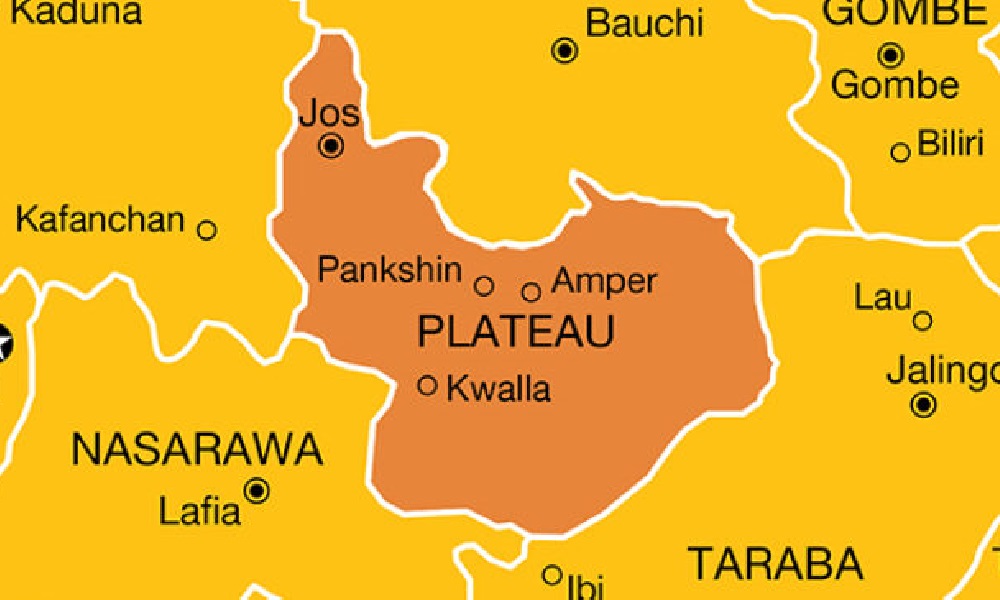
It was anger, sorrow and bitterness as the Zike community of Bassa Local Government Area (LGA) of Plateau State laid to rest the 51 victims of the recent attacks on the area.
The victims were gunned down early Monday when the perpetrators stormed the village and started shooting sporadically, leading to scores of deaths in what has become a recurring incident in the state.
At the solemn event, members of the community recalled how the incident happened, describing it as “disheartening”.
“I can tell you the situation is very disheartening,” a community leader, Davidson Malison, said, adding that “we are still searching for more corpses.”
“Something needs to be done to put an end to this,” Davidson said.
For a women leader, Mary Dikwa, the situation has gone out of hand.
“They have been killing us in this our community, and several times, they will come and attack us,” the Irigwe women leader said.
“They have been coming and killing, killing us every time. We are tired of this killing. Enough is enough. Our children are dying, our husbands are dying. Our crops have been razed down by this herdsmen,” she added.
Monday’s carnage came despite reassurances from government authorities and less than two weeks after a similar dastardly killing left over 50 people dead and several others nursing injuries.
Irked by the recurrent deadly attacks on the state, President Bola Tinubu ordered security agencies to go after the killers, describing the latest wave of assault on the North-Central state as devastating.
“I have instructed security agencies to thoroughly investigate this crisis and identify those responsible for orchestrating these violent acts,” the president said in a statement by his spokesman Bayo Onanuga. “We cannot allow this devastation and the tit-for-tat attacks to continue. Enough is enough.”
-
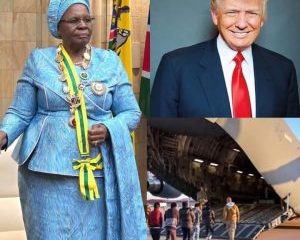
 News24 hours ago
News24 hours agoJust in: Namibia Moves to Deport Over 500 Americans in Bold Visa Policy Shift
-

 News19 hours ago
News19 hours agoYou must refund N300m, Rivers State tells NBA
-

 Politics22 hours ago
Politics22 hours agoBwala accuses Senator Ndume of plans to defect from APC
-

 News6 hours ago
News6 hours agoPeter Obi speaks as Benue govt. blocks humanitarian visit
-
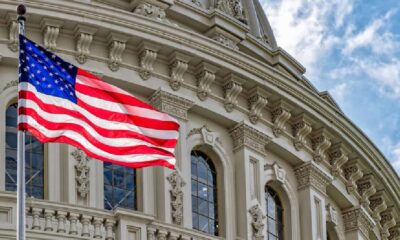
 Foreign20 hours ago
Foreign20 hours agoUS orders 30-day registration for all foreign nationals or face jail, deportation
-

 News22 hours ago
News22 hours agoPolice sack officer who killed one, injured two in Calabar
-

 News24 hours ago
News24 hours agoGunmen invade Plateau community in fresh attack, Kill 40 People
-
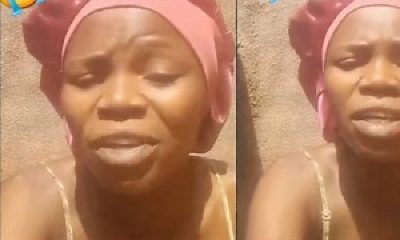
 News7 hours ago
News7 hours agoVideo: Woman Shares Her ‘Japa’ Experience, Claims Burkina Faso Is Preferable to Nigeria


